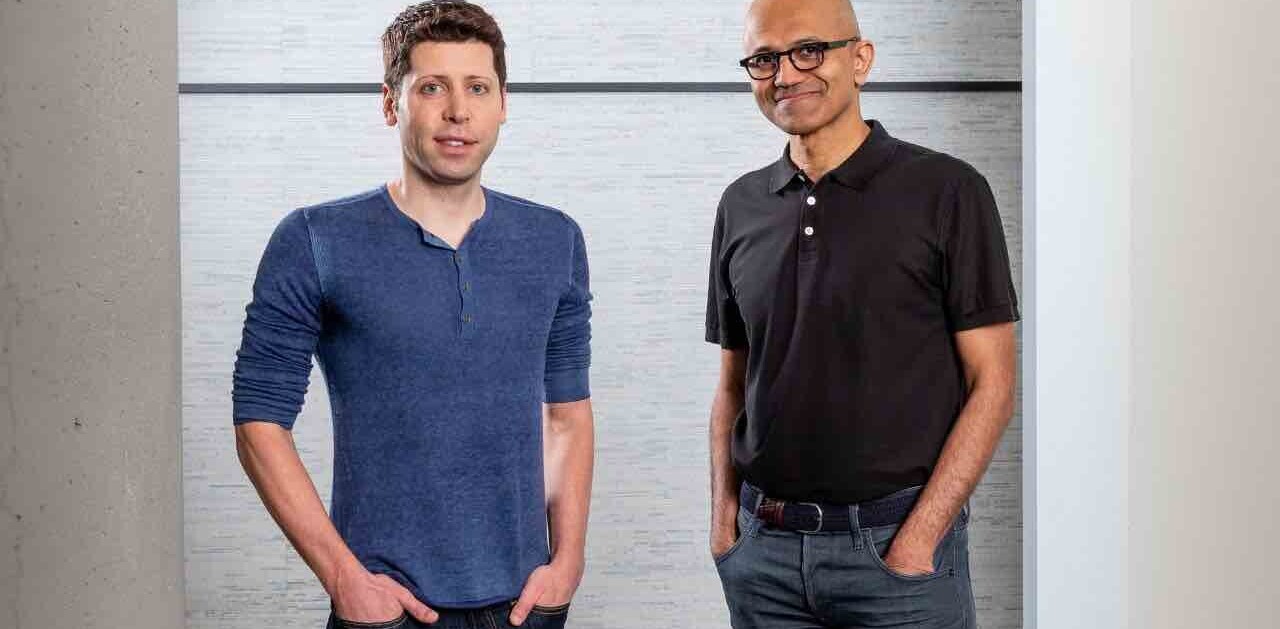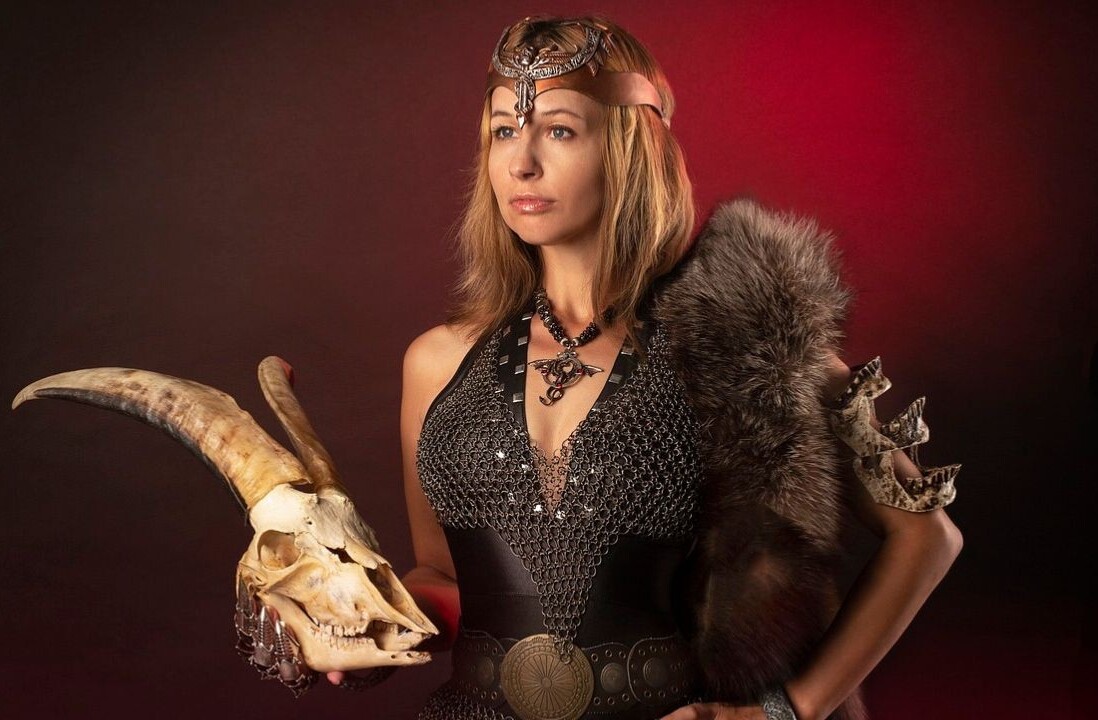![Y Combinator Partner Harjeet Taggar Gives His Insights [Interview]](https://img-cdn.tnwcdn.com/image?fit=1280%2C720&url=https%3A%2F%2Fcdn0.tnwcdn.com%2Fwp-content%2Fblogs.dir%2F1%2Ffiles%2F2011%2F09%2F049.jpg&signature=0caddbe69799efc41ef567b40bdcb3e8)
 Last week I had the chance to talk with Harjeet Taggar who previously founded Auctomatic and is now a Partner at Y Combinator (YC). This is his first in-depth interview since he joined. Part One of this interview was posted yesterday and it was to do with Start Fund. This post contains the rest of our conversation.
Last week I had the chance to talk with Harjeet Taggar who previously founded Auctomatic and is now a Partner at Y Combinator (YC). This is his first in-depth interview since he joined. Part One of this interview was posted yesterday and it was to do with Start Fund. This post contains the rest of our conversation.
Part Two: Harjeet Taggar and Y Combinator
After selling his first startup, Auctomatic for $5 million at the age of 22 it was expected that Taggar would start his next company. However, instead he decided to join YC as a Partner. I asked him why he chose that path.
“It happened randomly. I did YC myself in 2007 and sold the company in 2008. I spent a year with the acquiring company but it didn’t go as well as I had hoped. I left after a year and I prepared myself to do another startup. At the end of 2009 I met up with PG [Paul Graham, often called PG] and Jessica [Jessica Livingston] briefly, telling them what I was planning to do. Then I went back to England to spend some time with my family/friends and think about new startup ideas. A few days before the start of the new year I got an email from PG [Paul Graham]. The email said that YC was growing, they were in the process of raising a new fund and it felt like PG and Jessica were reaching full capacity with how much they could do themselves.
“In terms of full-time people at YC it was just Jessica and Paul. Robert Morris and Trevor Blackwell were involved in a part-time basis. PG advised all the startups himself and he felt that he was reaching the limit of how many he could do alone. They [YC] were looking to get someone to help. I was uncertain and semi reluctant because all I’d been thinking about was doing my next startup. PG suggested I come back out to the Valley and talk about it some more.
“I wanted to have a closer look because it did seem like an interesting opportunity. I came back to Mountain View and hung around the first YC dinner. I spoke to PG in-depth and I saw that YC was very different to how I remembered it being in 2007. There were more founders and the quality of the teams was just phenomenal. The atmosphere at the dinner was incredible, I hadn’t been around such anticipation and excitement for a while. There was clearly something very interesting happening at YC. So I said yes to joining without completely knowing what to expect .”
I pressed Taggar further into how he could give up on starting his own company, especially since that is what he had his heart set on. I wanted more of a reason than anticipation and excitement.
“This is something I learnt from my time at Livecurrent, the company that acquired us. It’s really important who you surround yourself with. This may sound harsh, and I do not want to be harsh but surrounding yourself with unambitious or mediocre people severely restricts how much you can learn and grow. Basically I didn’t know for sure if it was the right decision to join YC rather than doing another startup but I knew being around PG would inevitably lead to interesting things happening. PG has probably had the biggest influence on my life / career so far, his essays convinced us to relocate from England to the Valley and the chance to work with him was the deciding factor. I figured I have plenty of time to do another startup but I didn’t know if I would get another chance to work with PG on something as interesting as YC . I sensed it was an opportunity that would not present itself again and I had to take it.”
I then asked Taggar what being a Partner entailed, because it’s a pretty awesome title, but what did it mean?
“Some people seem to think that YC is a part-time gig for me where I do one hour here and another hour there. Actually the role is really intense. Not only do we fund startups, but we give a number of reasons why we are different from other investors, like our advice and really being involved with the startups. So the founders are entitled to then expect that help from us. Advising and taking care of 45 companies, that’s about 110 founders, 110 people constantly wanting your time and help, is very intense. Just replying all of their emails is heavily time-consuming”
Taggar then went on to explain what his day-to-day work involves.
“Day-to-day my time is split between office hours with the startups, which I usually hold two to three, or if there is enough demand more, times a week. The office hours are when I and the other partners set aside time, to speak with startups. We set aside hours or days, then the startups book slots, each slot is about 25 minutes, but inevitably they usually overrun. In those sessions, they [founders] come and talk to us about whatever issues they are facing or questions they have.
“Some of the new startups are trying to figure out what to do and we talk about ideas that may be suitable for them to pursue. We often focus on product feedback and the UI [user interface] and help decide when a product is ready to launch. We also often talk about different user acquisition strategies. Once the founders are ready we talk about fundraising. Office hours is the type of stuff I enjoy the most, because I have direct interactions with the startups and talk about interesting things. I learn a lot from them.
“When not doing that, I spend time meeting people who would be beneficial for the startups. Last year I spent a lot of time meeting with investors who wanted to invest in YC companies. Which was pretty useful, some companies from the last batch eventually got funded by investors that I had found, introduced and matched them up with. This proactive approach is something that YC hadn’t done before, because there wasn’t enough man power.
“The rest of the time we are trying to leverage the YC brand for startups. For example getting discounts/ deals/partnerships with companies that they [the founders] wouldn’t be able to directly approach themselves. I’m the only one at YC that does this. How I assist each startup is not preplanned, it’s pretty organic. For example a startup says to me, I wish we had some AWS credits or I notice that most of them are using Github. So I went and spoke to Amazon and Github, now all startups have access to AWS and Github credits.
“Another recent relationship I helped build would be with Facebook. YC companies now get access to instant personalization and preferential support. Same thing with Twitter, they [YC companies] get direct support and access to the API.”
“Then there’s also twice a year when I lock myself in my bedroom (also my office) for a few weeks and read YC applications. That’s probably the toughest part of YC, it’s incredibly tiring work.”
Taggar has been involved with 4 YC batches. I wanted to know what he has seen change since he joined. He told me that the most significant thing that changed was how much the power balance was shifting towards the favor of founders, in particular the relationship with investors.
“There is so much angel activity going on, and so many people determined to try to find good startups to invest in. The founders have lots of leverage. I remember when we did YC [in 2007], there was a select few angels that you really wanted to raise money from and those angels probably had their pick of the best deals. You felt lucky if they wanted to invest in your company. Now for the first time founders are more discerning, they are not prepared to take on investors at face value. They [founders] do not focus on the brand values of the investors or blindly accept the line “access to my rolodex”. Now founders are thinking, this guy seems like a big deal but what can he actually do to help my company?”
Founders are becoming more powerful, which is great for the future success of their company. But what are the trends he has seen since he joined that successful founders display? Taggar responded with the famous one liner, “There only really is one reason, determination.”. This subject area really interests me, and Taggar has exceptional insight, so I pushed him further and he gave me this little gem:
“After a few months of being at YC, PG asked me what has surprised you the most so far? And I replied that every company is, in some way, screwed. By that I mean every company presents a happy face when internally there are a whole host of things that they are worried about, like worrying if they are even going to be around next week. When I was doing YC, I used to think it was just us who was broken and everyone else was doing really well, which was actually kind of depressing.
“Now I realize that every startup, no matter how seemingly good, is in the same boat, like constantly a meter away from dying. If you think you are in a bad situation I bet you could find someone who would happily trade your problems for theirs. Which I think is powerful knowledge because if you look at things that way, no matter how bad things seem, it could always be worse so you should keep going.
“The startups that take off are the ones that continue to keep going, that is the difference between success and failure. Often people don’t start a company because they think they are not good enough, I have yet to see a company fail because the founders were truly incompetent or not good enough to do one. Yes we have a filtering process, but no founder is perfect, every founder and every company has their flaws but the ones that succeed are the ones that keep going. Like PG says, the way to win is to not die.”
I then asked Taggar to tell me from his observations what the common factors were that lead to companies failing and not the obvious reasons. Taggar said this question was hard for him to answer but did go on to answer.
“At our stage companies fail because they give up or the founders don’t get along, but that’s obvious. The other reason people fail is because the company is not making what people really want. I see this manifested in different personality types e.g. hackers, who just want to build really interesting things from a technology perspective but that no one else cares about.
“The same applies to business/academic-type people, they won’t build something because they like the technical aspect of building it but they are attracted to ideas for which they’ve clearly used the heuristic “what sounds like a good startup idea?”. It’s totally made up. It’s something that reads well on a business plan, but it’s not something they could identify ten passionate users for. People often think to resolve these issues by applying the lean startup principles, or go out and ask people what they want and mechanically try to build that. If it was that simple then everyone would do it. When people tell you what they want, you have to understand what they really want, underneath the surface. You have to understand what the true use case is of your product if you don’t want to fail. Like the YC mantra says; Build Something People Want”.
Taggar went on to say that the local small business market was particularly hot during applications for the past YC round:
“I’ve noticed that technical founders especially have realized that local small business will pay you money for products. Even thought it’s not the sexiest area. They have concluded that they can probably build better software than what exists now but what’s interesting is I’m also seeing more of them prepared to go out and do the initial sales themselves. If you can build good software and do sales, you have real potential.”
With all this experience, I asked about when he launches his next startup, what will he do differently?
“I would definitely work on a problem or product that I personally was interested in and meant something to me. When I was working on Auctomatic, we bought all this stuff from China and tried to trade it on Ebay [Auctomatic was an auction and marketplace management system] to try and understand how power sellers work and the problems they faced. But it wasn’t the same as making something that I really resonated with.
“I don’t think there is a massive amount I would change next time around, other than build something I really wanted to exist in the world. With my first startup our end goal was to get rich, and that was the wrong motivation. It’s actually very hard to get really rich from a startup, statistically the odds are not in your favour. I think that my reasoning for doing a startup in the future will be more meaningful than that.
“Starting a company is an irrational choice, doing anything where the odds are stacked against you is irrational. Doing something irrational requires fuel to keep the wheels turning. When you do your first startup the fuel can be blind optimism and naivety. That’s why some of the best companies come from first time entrepreneurs, i.e Google and Facebook. They are not limited by what they can or can not do. But if you’re not lucky enough to have a Facebook or Google first time around, you now have the double-edged sword of knowledge and need to replace the blind optimism fuel with something else.
“For me that fuel is; I want to have a positive impact at a large-scale in the world. That is why I find YC so fascinating, because in my opinion we are changing the world and that is very exciting to me. I’d want anything I start in the future to have the potential for as big of an impact on the world as YC can have, which is a somewhat daunting bar to set myself.”
Y Combinator has definitely had a positive impact on the world and being part of that must feel wonderful. I asked Taggar what the most rewarding part of being a Partner is;
“It’s both the most rewarding and the most challenging thing; always being around highly intelligent, energetic people. When I step out of YC, I realize that the YC Network is the most high quality network around. If I go home to England, the mentality is so different. Here I spend all day with people who are planning on building a huge company that is going to take on another huge company, and it’s just regular talk and you don’t think anything of it. But when you go back into the rest of the world, that type of talk is considered crazy talk, which is sad.”
Then I asked Taggar to tell the most interesting thing about working with Paul Graham;
“The best thing about working with PG in my opinion is that he is, along with PB (Paul Buchheit), the most candid person I know. The founders will also tell you this from their office hours with PG. Most people thought to speech process is; idea, then filter if acceptable to say, then say it. PG skips the filter part. Which is great, because you know exactly where he stands.”
“It’s something that I am trying to do more of myself, it’s really a great way to be. When you say exactly what is on your mind, it’s easier for everyone else around you. When people are indirect, you have to try to guess what they are really saying, which leads to two things happening; you open yourself to wrongfully interpreting that statement and it wastes everyones time, their time in filtering and your time in decoding.
“The other great thing about PG is that he will tell you what he thinks you should do but isn’t personally offended if you don’t follow his advice. He will continue to advise you on what he thinks is best whatever you do with your company. It’s still your call, it’s your company.”
I wanted to know Taggar’s view on why YC is so hot right now. He said it was because it is an investor that does a whole bunch of additional stuff and is run like a startup. “People assume because we don’t operate like regular investors that we are some kind of incubator, but we are fundamentally just investors who do a lot of stuff for our companies.”
But that didn’t explain why YC is so hot that the folk can feel the heat radiating from Mountain View to Russia. Taggar went on to explain further:
“PG and Jessica, they work outside of their own interest and focus on the founders. This is a philosophy that YC has had from the start. YC is founder friendly. It may sound clichéd now, but if you look at it, YC was the first investor that issued themselves pure common stock, no preferred, same as what the founders get.”
“I meet a number of investors that ask me “do you follow on” [investors that invest in proceeding rounds], to which I reply ‘no we don’t follow on’. They get shocked because a lot of investors make most of their money from ‘following on’. We don’t because it could harm the other startups that we didn’t ‘follow on’ with.
“Other investors are also shocked that our shares get diluted by the founders each time they raise another round. Suggesting that we put provisions in place to stop dilution of shares. But Paul and Jessica, have always said they will do what is best for the founders and won’t do things that could misalign those interests.
“When we sold Auctomatic there was no pressure from YC to not sell and shoot for an IPO [when YC would benefit most]. Our acquisition felt like the right decision and was good for us, it didn’t have a massive return for YC but they never made us feel bad about that. How YC treats its founders gets around. People talk and that is why we are so popular. Also the calibre of talent joining YC itself is phenomenal e.g. Paul Buchheit, Garry Tan and Alexis from Reddit.
“The YC brand and visibility has not come from marketing pushes, it has come from word of mouth from the founders thinking that they got a lot of value from YC. Then they go and tell other people. Airbnb was initially skeptical about joining YC, because they were launched. They knew the Justin.tv guys really well though. The Justin.tv guys said ‘You have to do it, it will really be worth it’.
“People forget YC started in 2005 and they have been working really hard since then. Last year seemed like an inflection point for YC in terms of visibility. We tell founders that they should make users happy and so we practice our own advice. We are all founders ourselves, and we treat YC as a startup where the users are the people we fund, and we always try to do what it takes to make the users happy. I think viewing investors as a product and the startups as its users is novel. I also think there’s a lot of innovation yet to be done in the investor world.”
YC’s popularity has even reached out to Tinsel Town with celebrities like Ashton Kutcher investing in tech startups. Tagger told me “Kutcher was all Ron Conway’s doing” and that will.i.am may also be getting involved. I then asked Tagger if celebs were affecting the YC brand, it’s cool and all but is it affecting the seriousness?
“I don’t think it dilutes the seriousness of the brand or has that much impact on YC. People like Ashton Kutcher can clearly add value as investors. Founders seem to enjoy working with him and he’s enjoyed success outside of acting, in business. He also has genuinely interesting thoughts about using the web to reach and engage with large audiences. Those all sound like good things to me.”
I finally asked Taggar if YC had any more magic tricks up its sleeves, to which he replied, “The answer is yes, but I don’t know what yet. There is no master plan. We will just continue to experiment and work hard for the startups.”
Whatever happens next with Y Combinator, TNW will be there to cover the story, so keep reading.
Follow Taggar on Twitter @Harjeet
Get the TNW newsletter
Get the most important tech news in your inbox each week.









